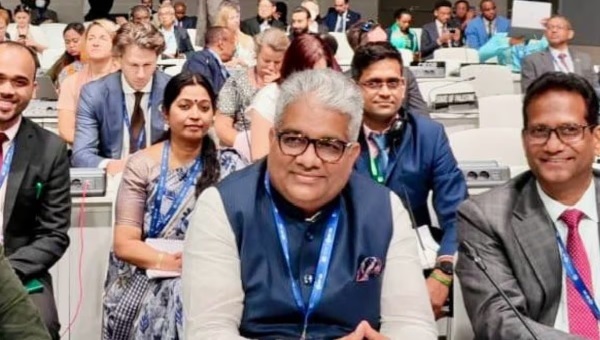Dubai, Dec 1:
The agreement on the operationalisation of the Loss And Damage Fund that is aimed at compensating developing and poor countries facing the climate crisis despite contributing little to it was welcomed as a “positive signal” by India on Thursday even as it evoked a set of mixed reactions, especially from the Global South.
The UN climate talks COP28 opened on a positive note with countries clinching an early deal on the operationalisation of the Loss And Damage Fund with COP president Sultan Al Jaber highlighting that the science is clear and “now is the moment to find a road wide enough for us all to deliver climate action.”
India’s Environment Minister Bhupender Yadav posted on X soon after the decision was announced: “A positive signal of momentum from COP28 in UAE on the first day itself … Landmark decision on operationalisation of the Loss and Damage Fund was adopted in the opening plenary of COP28. India strongly supports the decision to operationalise the Loss and Damage Fund.”
Global South, comprising poor and developing nations, have long been pointing out the lack of adequate funding to tackle the changing climate leading to disasters including floods, droughts and heat waves, and blamed the rich nations for not opening the purse strings wider. Developing countries have also claimed the rich nations bear the responsibility for helping them tackle the changes as historically it is those nations that have contributed more to the carbon emissions that have heated up the earth.
Earlier on Thursday, the World Meteorological Organisation (WMO), the UN’s weather agency, said that 2023 is all but certain to be the hottest year on record, and a warning of worrying trends that suggest increasing floods, forest fires, glacier melt, and heat waves in the future.
It also warned that the average temperature for the year is up some 1.4 degrees Celsius (2.5 degrees Fahrenheit) from pre-industrial times – a mere one-tenth of a degree under a target limit for the end of the century as laid out by the Paris climate accord in 2015.
The decision to operationalising the Loss and Damage Fund was crucial for the global south as at the COP27 in Egypt’s Sharm El-Sheikh last year, rich countries had agreed to establish a loss-and-damage fund but the decisions on funding allocation, beneficiaries and administration were kept hanging.
The developing countries wanted a new and independent entity to host the fund but accepted the World Bank only reluctantly, albeit temporarily, for the next four years.
Immediately after the decision to operationalise this fund, the UAE and Germany announced that they would contribute $ 100 million each to the fund.
Joe Thwaites, senior advocate for International Climate Finance at NRDC (Natural Resources Defense Council) called it a historic achievement.
“The Loss and Damage Fund will provide urgent assistance to vulnerable communities living on the frontlines of the climate crisis they did little to cause. All wealthy and high emitting countries now have a responsibility to step up and contribute to the fund,” he said.
Ulka Kelkar, Director, Climate Change Programme, WRI India, said developed countries need to pledge new and additional funds to the Loss & Damage Fund so that support can be provided to countries and communities where it is most urgently needed.








